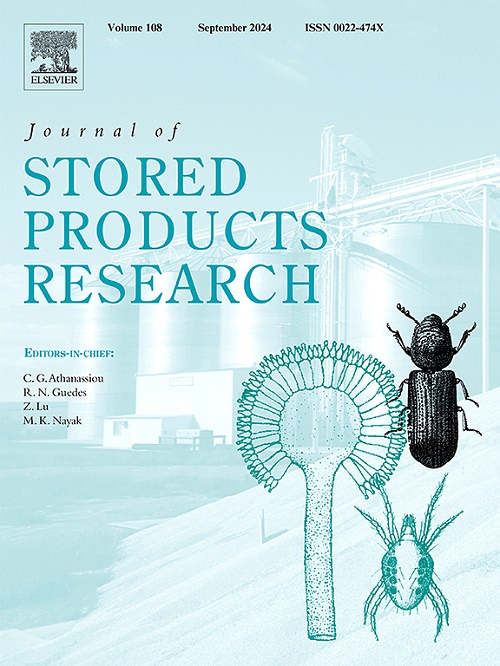Sustainable farming with machine learning solutions for minimizing food waste
IF 2.7
2区 农林科学
Q1 ENTOMOLOGY
引用次数: 0
Abstract
This research explores the application of Artificial Intelligence (AI) and Machine Learning (ML) in mitigating post-harvest losses and reducing food waste within the agricultural supply chain. Our objective is to rigorously quantify the effectiveness of these technologies at various stages of food handling, from production to consumption, to improve food security and sustainability. The study employs a mixed-methods approach, integrating quantitative data from IoT sensors deployed in field studies and qualitative insights from stakeholders, including farmers and retailers. The study's findings reveal that AI-driven cold storage interventions led to a 60% reduction in post-harvest losses for perishable items. Meanwhile, ML-optimized logistics resulted in a 20% decrease in transportation-related food waste. Despite these improvements, challenges remain in accurately predicting market demands, occasionally leading to overproduction. This highlights the need for further refinement in AI algorithms to handle market volatility. Integrating AI and ML in agricultural practices offers substantial benefits, demonstrating the potential to transform food supply chain management. However, additional improvements are required to maximize accuracy and efficiency. Future applications of the models include real-time adaptive logistics, blockchain integration for traceability, and AI-powered predictive demand forecasting.
可持续农业与机器学习解决方案,以减少食物浪费
本研究探讨了人工智能(AI)和机器学习(ML)在减轻农业供应链中收获后损失和减少食物浪费方面的应用。我们的目标是严格量化这些技术在食品处理各个阶段的有效性,从生产到消费,以提高食品安全和可持续性。该研究采用混合方法,整合了实地研究中部署的物联网传感器的定量数据和包括农民和零售商在内的利益相关者的定性见解。研究结果显示,人工智能驱动的冷藏干预措施使易腐物品的收获后损失减少了60%。与此同时,机器学习优化的物流使运输相关的食物浪费减少了20%。尽管取得了这些进步,但在准确预测市场需求方面仍然存在挑战,有时会导致生产过剩。这凸显了人工智能算法需要进一步改进以应对市场波动。将人工智能和机器学习整合到农业实践中可以带来巨大的好处,展示了改变食品供应链管理的潜力。然而,需要额外的改进来最大限度地提高准确性和效率。这些模型的未来应用包括实时自适应物流、区块链可追溯性集成以及人工智能驱动的预测需求预测。
本文章由计算机程序翻译,如有差异,请以英文原文为准。
求助全文
约1分钟内获得全文
求助全文
来源期刊
CiteScore
5.70
自引率
18.50%
发文量
112
审稿时长
45 days
期刊介绍:
The Journal of Stored Products Research provides an international medium for the publication of both reviews and original results from laboratory and field studies on the preservation and safety of stored products, notably food stocks, covering storage-related problems from the producer through the supply chain to the consumer. Stored products are characterised by having relatively low moisture content and include raw and semi-processed foods, animal feedstuffs, and a range of other durable items, including materials such as clothing or museum artefacts.

 求助内容:
求助内容: 应助结果提醒方式:
应助结果提醒方式:


